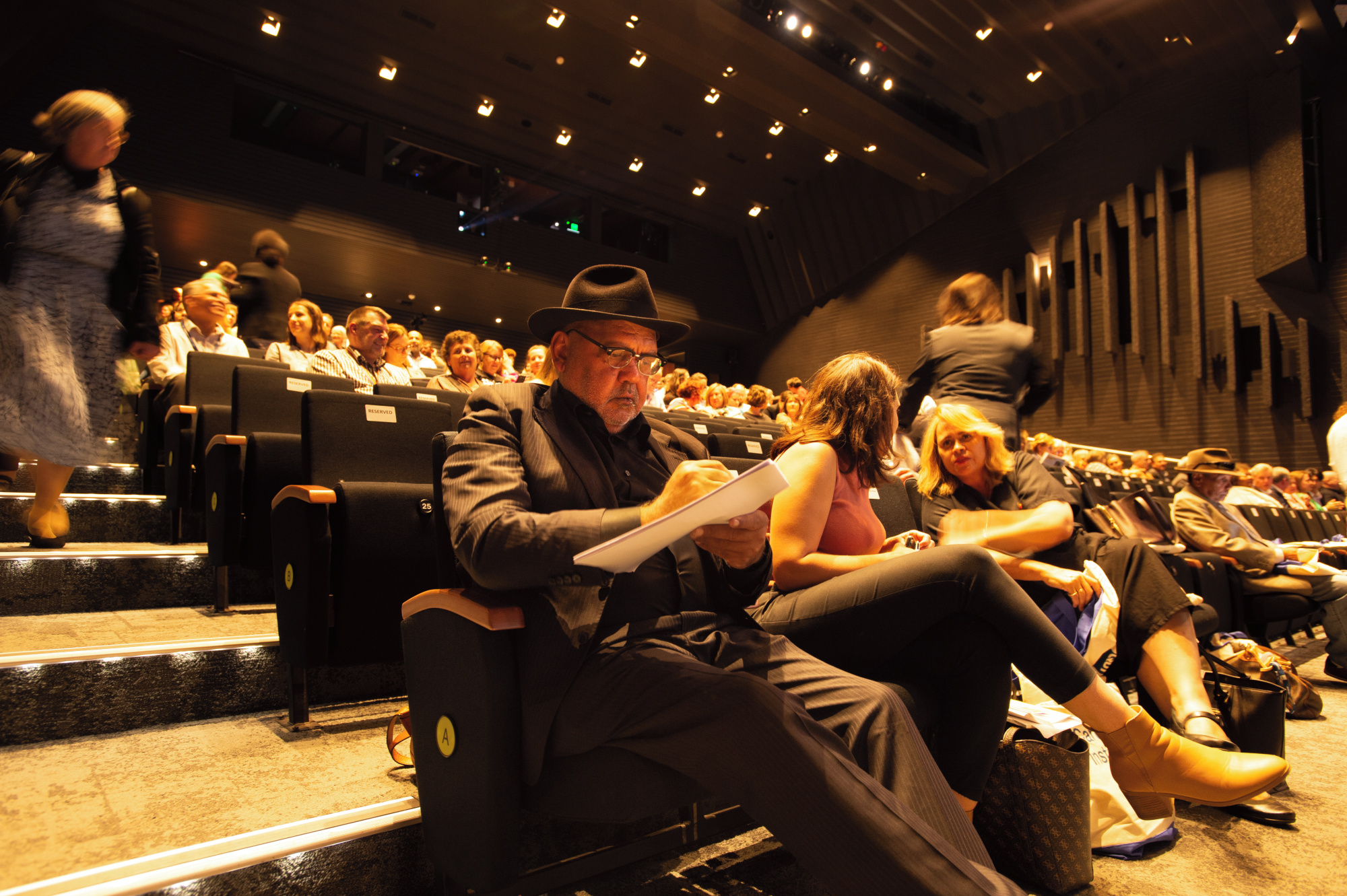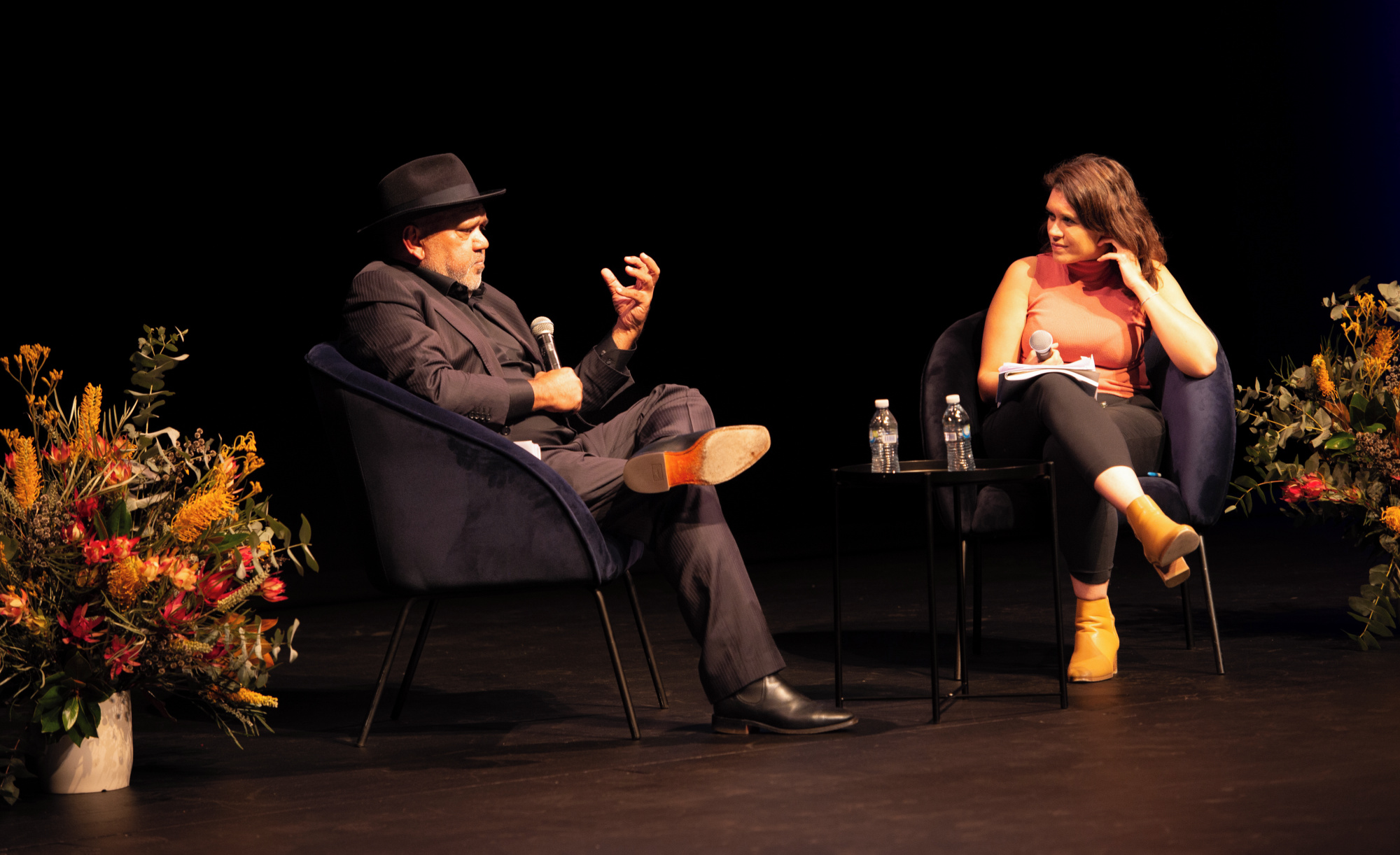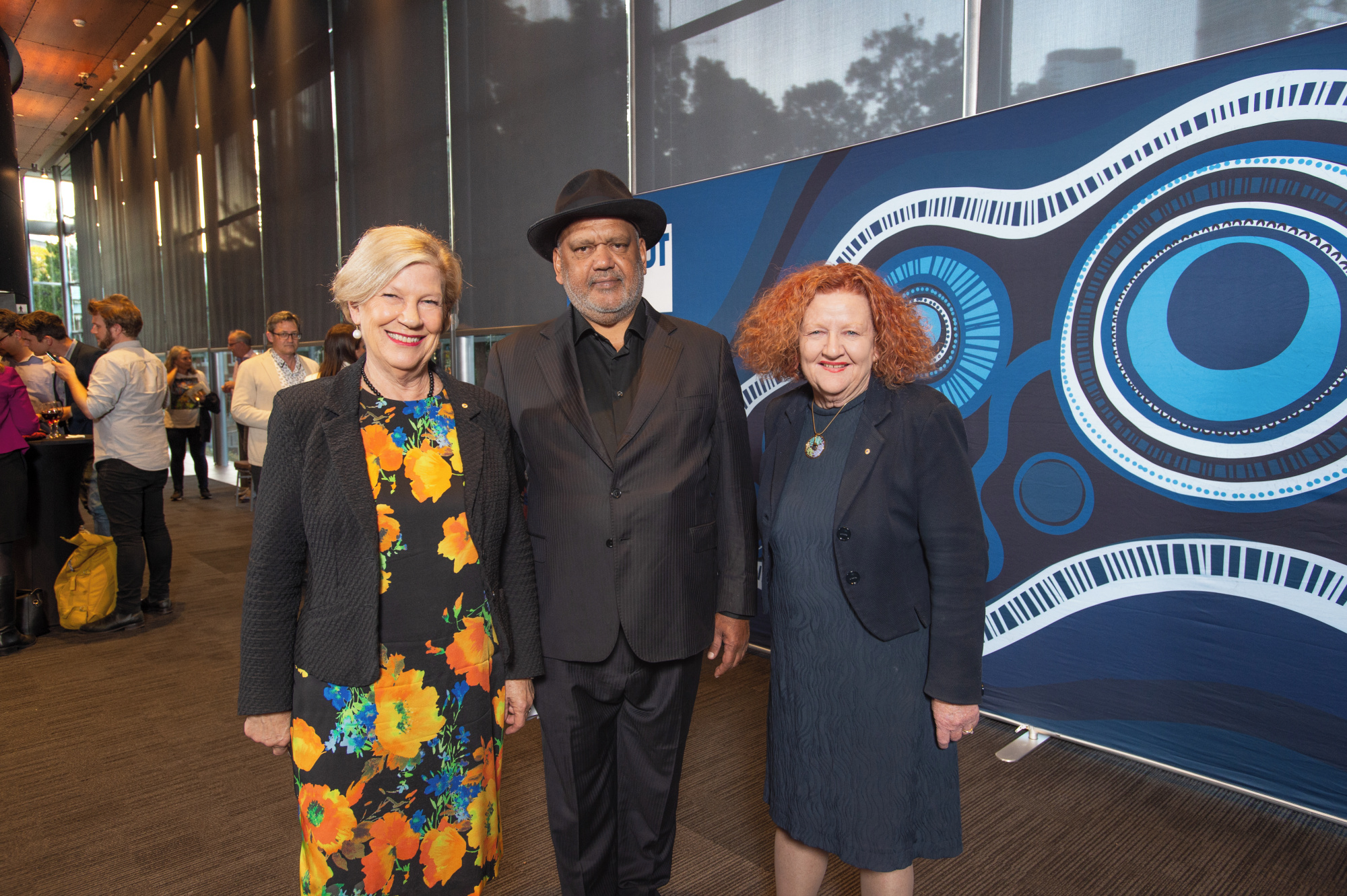Indigenous Australians demand the right to be held accountable for the policies that govern them, Voice to Parliament Yes campaigner, Noel Pearson has told a packed audience during the QUT Meanjin Oration in Brisbane.
"We have to get to the point where it is legitimate to blame us," Mr Pearson said.
"By all means blame us but give us a say in the decisions that are made about us before you do."
QUT Chancellor Ann Sherry AO, Vice-Chancellor Professor Margaret Sheil AO, Queensland Human Rights Commissioner Scott McDougall, and community elders from across Queensland were among more than 600 who registered to hear constitutional lawyer and Indigenous rights champion Noel Pearson build a clear case for the Yes campaign in the upcoming Voice to Parliament national referendum.

"This is not an election campaign," Mr Pearson said. "This is not about which political tribe you belong to. At the referendum there is only one tribe, the Australian tribe. We will recognise Indigenous people and in time, fear and prejudice will dissipate, this is my belief.
"We will all understand that no one is more or less Australian than anyone else. Whether your ancestors arrived on the First Fleet or last year, whether the bones of your ancestors have turned to dust over millennia or 65,000 years.
"I don't want Indigenous children growing up with a question as to where they fit in Australia. With a sense of alienation and whether they are accepted in their own country."
Up to 30 per cent of voters are yet to make up their minds on the Voice to Parliament referendum which will be held before the end of the year, giving the Yes campaign an incentive to persuade the soft yes or no voters to 'see their way to yes'.
And with 23,000 volunteers signing up to support the Yes campaign, 2000 of whom joined in the past two weeks, it is now one of the fastest growing political volunteer armies in Australian political history.
"This is our last best chance," Mr Pearson said.
"Queensland is the engine room of Australia's future. It is the only jurisdiction that is home to both Aboriginal and Torres Strait Islander people. We can look forward to hosting the Olympics in 2032 and being able to showcase our state."

He said generations have been waiting for the Voice to Parliament referendum, with momentum building over the past 15 years, through five governments and eight prime ministers as Aboriginal and Torres Strait Islanders 'played the long game' to effect constitutional change.
"No other public policy issue has taken so long as the Voice,' Mr Pearson said. "No other parliamentary committee and public consultation processes have taken so long as the Voice.
"It will empower local and regional communities in a way that does not exist. This is the self- determination that we need to drive practical outcomes for our people that is urgently needed, particularly in remote communities."
Australia has had 14 referenda in the past 100 years dealing with 31 issues, from the vote to establish Australia as a Republic in 1999 which was not carried, to the referendum to remove the prohibition against counting Aboriginal people in population counts in Australia that was carried in 1967.
Mr Pearson said if passed, the Voice to Parliament referendum will recognise Aboriginal and Torres Strait Islanders as the first people of Australia in The Australian Constitution. There will be a body set up to make representations to the parliament and executive government on matters relating to Aboriginal and Torres Strait Islander peoples. And federal MPs and senators will debate and vote on the detail of such a body, making amendments and changes as necessary.
"The ABC was created under a constitutional power in 1932 when the Australian Broadcasting Commission Act was passed," Mr Pearson said.
"Ten years later it was overhauled and in 1983 they completely replaced it with the Australian Broadcasting Corporation Act.
"It's the same constitutional power but with different legislative detail."
Mr Pearson said the power in the constitution by which the federal government can make laws in relation to Aboriginal and Torres Strait Islander people is the 'race power' which was originally included in the constitution so that parliament could make laws discriminating against and excluding the Chinese and other Asian migrants during the gold rush.
"It is now only used to make special laws about us. So it makes sense to establish a body to advise on the exercise of that power," he said.
"We are Indigenous peoples; we are not a separate race … many problems flow from making racial distinction and this referendum is an opportunity to address this.
"We must leave the settler/native story behind us."

The Meanjin Oration is the Carumba Institute's signature event of the year at QUT and profiles Aboriginal and Torres Strait Islander excellence.
The oration was hosted by Carumba Institute executive director Professor Chelsea Watego, with award-winning Indigenous journalist Dr Amy McQuire engaging Mr Pearson in a Q & A session following his oration while QUT Vice-Chancellor Professor Margaret Sheil AO gave the closing address.
A replay of the 2023 QUT Meanjin Oration with Noel Pearson can be found HERE.
Main photo: Noel Pearson giving the Meanjin Oration at the QUT Gardens Theatre on Monday, August 14, 2023
Inset photos: 440 people attended the Meanjin Oration in person while a further 200 registering to view the event online; Noel Pearson is interviewed by Dr Amy McQuire; QUT Chancellor Ann Sherry AO with Noel Pearson and QUT Vice-Chancellor Margaret Sheil AO.






